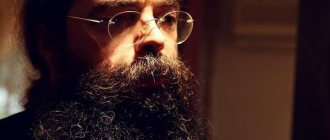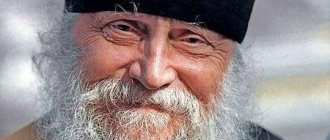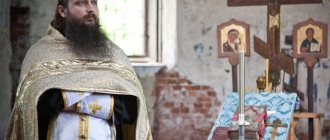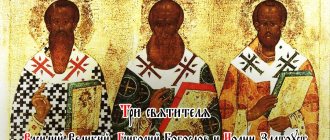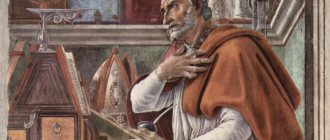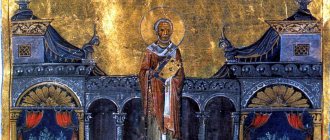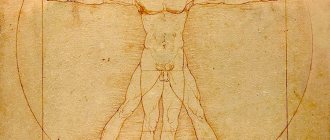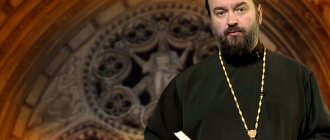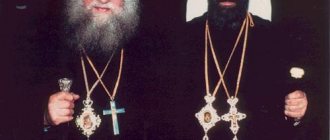Archpriest Grigory Igorevich is a man with a unique destiny, who dedicated his life to treating people from various severe addictions. Through a combination of his medical and church training, he is able to guide everyone in need on the path to combating addictions. As a result of his work, he cured more than 100 thousand people from alcohol and drug addictions.
Origin and birth
Gregory was born in the city of Leningrad, December 23, 1956. His father, Igor Nikolaevich Grigoriev, was from the Pskov region, participated in the Great Patriotic War as one of the commanders of the Plyussky Podvolye in Pskov, and was part of a reconnaissance detachment. For some time he was recovering from the war, working as a hunter and geologist. Later he enters Leningrad State University (LSU). He is a member of the USSR Writers' Union. The first collection of poems by Igor Nikolaevich, “Natives of the Distance,” was published in 1960. Throughout his life, he published 22 collections of poems. It is noteworthy that Gregory himself sees more and more in the lines of his father’s poems over time. The main theme of the poems can be considered love for life, people, and one’s country.
While studying at the university, Igor Nikolaevich met his future wife and mother of Grigory, Daria Vasilievna Zakharova, originally from the Vitebsk region. As a philologist, she runs her own lyceum, where school-age children receive education in the spirit of the 19th century.
Many new dependencies have appeared
— I can’t help but ask you, as a specialist, are there more addicts now, or is the situation static?
— There are more dependencies. 10 years ago there were less than 10, but now there are more than 400. That is, the number of addictions as clinical diagnoses has increased 40 times. But I would not say that there are more cases of certain addictions, such as alcoholism, drug addiction, and smoking. Rather, a decline is beginning. We have passed the peak of addiction growth.
— What is the most common addiction now?
— As always, these are drugs, smoking and, of course, drunkenness, which annually claims 600 thousand lives. Computer addiction is also relevant, although this is a matter that will still be studied. After all, the computer is not evil. It can be a useful tool, but at a certain stage, passion for it can turn into addiction, when it is no longer used for its intended purpose, not as a device, but as a window into the virtual world. It is known that a sin repeated many times becomes a passion, and an old passion turns into a disease, and then human physiology is disrupted, and we can talk about the creation of a physiology of sin. This is the situation.
— What preventative work should be carried out to protect society?
— We must carry out explanatory work all the time, we must tell the truth, we must tell how addictions are formed, how the three heads of the green snake appear, and what ways out of the problem exist. We must try to form in people a critical self-assessment of their condition, because when they become dependent, this self-esteem begins to decline, as with the development of any mental illness.
Teenage years and early life
Until the age of five, the boy lives with his parents in Leningrad, not far from the Church of the Resurrection of Christ near the Warsaw Station. Often he and his mother painted nearby Orthodox churches, including the Izmailovsky Cathedral, which was located nearby. After five years, his parents sent him to his grandparents in the Vitebsk region.
Gregory's young years were spent mainly in a military environment. His atheistic education and environment left him unbaptized for a long time. No one could have imagined that in the future he would become a church minister.
Getting an education
In 1973, he graduated from high school in the city of Gorodok, and then entered the S. M. Kirov Military Medical Academy in Leningrad, which he graduated from in 1979.
Professional and scientific activities
Gregory was called to serve as a military doctor on a submarine in the Pacific Fleet. Throughout his service, he held various positions: from the head of the medical service to the senior psychoneurologist of the Pacific Fleet. In 1980, during two months of long-distance voyage, he was involved in serious accidents at sea three times. As a result of these events, the future priest begins to read the Gospel, which his grandmother gave him. From that time on, he increasingly thought about God and in 1982 he was baptized. This is a turning point in Gregory’s biography, which changed his attitude towards the world.
I don't work for awards
| — There were people who criticized you at one time. Now, in connection with the defense of a doctoral dissertation, many questions are resolved? - The fact is that those who criticize - they were, are and will be. Every person who is engaged in a living business must be criticized. This is fine. Criticism can be benevolent, fair, it can be slanderous, unfair, but, for example, in order to criticize a doctoral dissertation, it must be done at the level of a doctoral dissertation. I don’t think that there will be more or less criticism, but for the hierarchy, for priests, for many normal and decent people, the doctoral dissertation dots all the i’s and closes many questions. But this is for theologians, for professors, for specialists, well, if an ignorant person criticizes someone, criticize him, even a doctor, even a professor, even an academician, I think there will be no difference. I think that all of us - doctors of divinity - will serve God even more actively. — Will you continue to build a bridge between the Church and medicine? - Yes, and the first pillar of this bridge is the medical doctorate, and the second is the theological doctorate. By the way, this dissertation was defended on September 8, the day of Adrian and Natalia, and the Patriarch presented me with a cross (Doctor of Theology - ed.) November 1, when he consecrated the Church of the Beheading of John the Baptist of the All-Church Postgraduate and Doctoral Studies. In fact, this is All-Russian Day of Sobriety. — How coincidental, you have the Church of the Nativity of John the Baptist! “This was God’s providence, very joyful and bright for us.” I was immediately included in the commission for relations between the Ministry of Health and the Patriarchate. Now I, as the theorist of this bridge, will have the opportunity to put the ideas of consolidation into practice. Well, when, during the consecration of the temple, our ruling bishop, Bishop Ignatius of Vyborg and Priozersk, announced that he was naming me archpriest - it was an absolute surprise not only for me, but for all the parishioners. They even clapped and applauded. Our Bishop did not expect this, he was a little confused and said: “You are not in the theater, is it possible to applaud in church? We must say “Axios!” - “Worthy!” But, really, they were like children at that moment. I later told Vladyka: “After all, there were cases when people applauded in church.” He asked: “When is this?” I say: “John Chrysostom was applauded for his sermons.” “I’m not John Chrysostom,” said Vladyka Ignatius. I say: “You know, you found such words for the hearts of people that they had the same effect on them as the words of John Chrysostom,” and Vladyka immediately began to smile. And indeed, there is no need to scold for this - people just burst out. — When the Holy Fire descends on Easter, we see Orthodox Arabs jumping, clapping their hands and dancing like children. - Yes, like babies - both with joy and with everything, everything went off scale for them. I think a priest should not think about awards - this is the business of the bishop, the business of the dean, he should think about the awards of his priests. Therefore, everything we do is not for rewards, but rewards oblige us to even greater service for the glory of God, to even more active apostolic evangelical preaching. — I see, but what rights does the title of Doctor of Theology give? - All these titles in the Church - they only give responsibilities. Rights? What rights? The Patriarch has the least rights. He just owes everything. Serves all year round... - Well, he also has power! “I’m not talking about power, but about responsibilities.” In fact, power also comes with a huge number of responsibilities. |
Working in the medical field
While still a doctor on a submarine, Grigory gains extensive experience in medicine. After leaving the navy, the future clergyman returns to his native Leningrad. There he begins to work as a psychiatrist-narcologist at the Clinical Hospital of the Administration of the USSR Academy of Sciences, specializing in the treatment of alcoholism and drug addiction.
Lectures
Since 2005, he began teaching a course of lectures “Spiritually oriented psychotherapy of pathological addictions” at the Department of General Psychology at the Medical Institute of Northwestern State Medical University named after. I. I. Mechnikova.
Writing scientific papers
In 1993, on the academic council of the Psychoneurological Institute. V. M. Bekhtereva defended his PhD thesis on the topic “Treatment of alcoholism using the method of mass emotional-aesthetic psychotherapy.”
In 2004, at the All-Russian Center for Emergency and Radiation Medicine of the Ministry of Emergency Situations of Russia, he received a doctoral degree for his work on the topic “Crisis and rehabilitation assistance for drug addiction based on stress (spiritually oriented) psychotherapy.”
Wrote more than 400 scientific papers. He is the author and co-author of 4 patents of the Russian Patent Office. Under his leadership, textbooks and monographs are published.
Addiction Treatment
Father Gregory specializes in the treatment of alcohol addiction. In his work, he was especially useful in his personal experience in this problem, which he gained as a medic on a submarine. In limited conditions, a military doctor had constant access to alcohol. As time passed, Gregory began to feel unwell and decided to keep track of the alcohol he drank. It turned out that in three months he had not drunk alcohol for only a few days. Realizing the scale of the problem, Gregory removed alcohol from his life and never returned to its use. He has not drunk for more than 30 years, noting that such a long period of sober life allows him to always keep his thoughts and feelings under control and never allows him to fall into delusions and illusions.
Alexander Dovzhenko, Doctor of Medical Sciences, founded his own method of stress-psychotherapy for addictions. He had his own followers who continued his work, among them was Grigory Igorevich. He improved his teacher’s method because he saw that after recovery the patient relapsed. It was necessary to fundamentally change the approach to healing.
This is how the method of emotional-aesthetic stress-psychotherapy appeared. Intimidation of the patient was replaced by a detailed explanation of the causes and consequences of the development of pathologies.
Grigory argues that the patient must receive information about what is happening to him, that there is physical, mental and emotional dependence. During the explanations, those in need accept the fact that they are sick, turn to God for help and pledge themselves to a sober life. If the patient again reaches for alcohol and becomes nervous, he will face confession. After it, the craving for alcohol disappears and the strength to fight addiction appears.
Healing begins when a person realizes that he is sick.
In his treatment, the clergyman pays attention to the benefits of valerian. In his opinion, it should be taken during treatment for alcohol addiction in any form. Valerian promotes the production of internal alcohol, which balances the body's need to drink alcohol. At the withdrawal stage, the body lacks the internal positivity that consistently appeared when drinking. It is at this time that valerian helps to strengthen well-being. After the first doses, the body does not feel significant changes, but you cannot stop and you must continue to take the medicine. It is recommended to take it for a long period of time from three to seven times a day with the addition of honey and small sips.
All addictions are an unsuccessful human attempt to find inner balance without the help of God, a kind of attempt to find the Kingdom of Heaven in the underworld.
Grigory Grigoriev
Priest Grigory Grigoriev. “I am building a bridge between medicine and the Church”
Doctor of Medical Sciences, Professor G. I. Grigoriev has been heading the International Institute of Human Reserve Capabilities (IHRCH) for about 20 years. With the spiritual mentoring of archpastors and pastors of the Russian Orthodox Church, Grigory Igorevich leads the Society of Sobriety and Mercy of the Holy Blessed Grand Duke Alexander Nevsky, which operates at our church.
About teachers
— Grigory Igorevich, how do medicine, psychiatry, healing and church ministry intersect in your work? — All my adult life I have studied working with drug addicts, including from Dr. A.R. Dovzhenko.
I was indeed one of his closest students, to whom he bequeathed to continue his work. And although Alexander Romanovich did not have the opportunity to bring people to church, he himself was a deeply religious Orthodox man, and his healing sessions were based on an analogy that outwardly resembled a church liturgical service. However, the atheistic time in which he lived was unfavorable for the revelation of his spiritual gift, therefore the content and design of A. R. Dovzhenko’s sessions were adapted to the everyday and medical level of understanding of his contemporaries. Accumulating positive experience of treatment according to the method of A.R. Dovzhenko, indicating the removal of painful cravings in a significant number of patients with pathological addictions, I saw, however, how after a seemingly successful treatment the disease returned again, the person relapsed. Therefore, there was a need for further improvement and fundamental transformation of the methodology. Thus, the method of emotional-aesthetic stress psychotherapy (EESPT) was gradually formed, where the instillation of the patient’s fear of death was removed and replaced with an intelligible, scientifically-clinically based, detailed, but easily perceived figurative explanation of the causes and mechanisms of development of pathological dependence syndrome. The next significant stage in the activities of MIRCH was the formation of a method of spiritually oriented psychotherapy for pathological addictions in the form of a healing vow on an Orthodox basis (DOP CZ). Having the EESPT method as its predecessor, the DOP CZ method has outgrown it, becoming an independent method of treating patients with alcohol, drug and substance abuse disorders at the International Institute of Human Reserve Capabilities. — Do you connect the reasons for the development of alcoholism and other addictions with the spiritual state of a person? - Yes. For some time now, I have begun to largely link the roots of these reasons with the spiritual state of a person, and interpret the dependence itself not only from a psychophysiological position, but also from the position of sinful passion and the consequences that are destructive for the body and soul resulting from it. At the same time, the role of the patient himself in overcoming the painful attraction was sharply actualized and instead of fear, only a friendly warning appeared not to tempt fate, not to commit sin as an act that inevitably brings spiritual, mental and physical destruction. My colleagues and I began to partially use the patristic experience of confronting sins back in 1988, when our institute was created. Even then, before the psychotherapeutic session, the Orthodox priest (and my spiritual father), the ever-memorable Archpriest Vasily Lesnyak, who had 44 years of experience in pastoral service and was revered by parishioners as an elder, delivered a short sermon and served a prayer service of the pre-revolutionary Alexander Nevsky Brotherhood of Sobriety and Mercy. It should be noted that Fr. Vasily Lesnyak, as well as all the spiritual fathers who subsequently collaborated with the institute, had the blessing to work together with our doctors from His Holiness Patriarch of Moscow and All Rus' Alexy II and his ruling bishop, Bishop of Mint John (Snychev) - at that time the Metropolitan of Leningrad and Ladoga. Currently, the institute operates with the blessing of Vladyka Vladimir, Metropolitan of St. Petersburg and Ladoga.
About faith and parents
— How did you come to God yourself, Grigory Igorevich? — It was back in the navy, when I served as a doctor on a submarine in the Far East. During long-distance voyages, I was directly involved in the response to emergency situations on submarines three times. And when we miraculously escaped the third accident and floated to the surface in the Indian Ocean, I clearly remember how perfect and amazing the world seemed to me: the night, the starry sky overhead and such an order in the Universe that it was breathtaking. And suddenly it became especially clear to me that such an order could not arise on its own, without a plan and a Creator. And this chilling fear passed after the accident, when I wanted to throw myself into the water and swim far away from this submarine. And such silence in my soul, such peace. Grace, in a word. After that I was baptized.
— Tell us about your parents, about your ancestors. Are they believers? - Yes, believers. And also heroic people. My grandfather - Nikolai Grigorievich - was a peasant poet and a full Knight of St. George, a favorite of General Brusilov. He began participating in the First World War with the rank of non-commissioned officer, and ended as commander of a sapper regiment. My father, Hero of the Soviet Union, partisan intelligence officer, is unfortunately no longer with us, although I constantly feel his presence, support and help. He was a fairly famous poet, winner of two state prizes. On the back cover of one of his poetry collections, “Steep Road,” it is written in his handwriting: “I am a believer, Russian, rural, happy, ready for anything that is not against my Conscience! What else? And the signature is Igor Grigoriev. Back in 1984, in my letter to my father, published in the same collection, I wrote that the longer I live, the more I understand his poems. I re-read them often, many of them are like prayers for me. They contain the true pain and cry of the things of the Russian soul. His poems contain a fusion of times, their inextricable unity... Now I know: my father, before anyone else, alone, began the battle for our future, which we only learned about now. My mother, Daria Vasilievna, is also an absolutely amazing and unique woman. For many years now she has been heading the Pushkin Lyceum, where children from kindergarten to secondary education study according to programs from the times of Pushkin and Delvig. The main emphasis in this lyceum is on spiritual enlightenment and moral education, not excluding, of course, a good basic education for further successful admission to universities.
About the miracles of God
— Have real miracles happened in your life? — The main miracle of my life happened to me exactly 25 years ago, all in the same Far East, where I served as a senior psychoneurologist in the Pacific Fleet. At the end of July 1982, while reading my morning prayers, a text came to my mind, clear as a telegram: “In two weeks you will get married.” For me, this message was tantamount to a statement that tomorrow you will become president. I had neither a fiancée nor anyone who could even potentially become my wife, and in general, marriage was not at all part of my plans. But since such a message came, I began to wait, not knowing what or who. A week passed without anything happening, and when the second was already coming to an end, I began to think that everything was just my imagination. And 15 minutes before the end of the last two week working day, when I was already starting to get ready to go home, an acquaintance came into my office and said: “Are you relieving pain?! Maybe you can help one of my friends with a spinal injury, the doctors didn’t help her well.” And I set off to meet my destiny. On the first day, I successfully relieved Elena of her pain, and on the second, I proposed to her. Now we have three children, two grandchildren, a wonderful home, joint work and a very friendly big family. On October 15, we celebrated our silver wedding with the whole family. In all these years we have not said a single bad word to each other. The second obvious miracle happened to me when I, together with my spiritual father Vasily Lesnyak, came to Jerusalem for the first time in 1994 for Easter. I was told that if during the descent of the Holy Fire in the Church of the Holy Sepulchre, you ask God for everything hidden, then all your wishes will come true. I wrote a long list of wishes, and we spent 30 hours in the temple without food or water, suffering from heat during the day and cold at night. When the time for the descent of the Fire was approaching, my consciousness was already floating away, but the feeling of God’s grace that gripped me at that moment told me that there was no need to ask God for anything, He already knows everything. And for some reason I mentally shouted: “Lord, I ask only one thing: if I am alive and if Your will be done, I want to come here every year, to see the Holy Fire...” And for 14 years now the Lord has favored my trips. Since I have made friends there over the years, they help us get to church for Easter.
About the work of MIRHF
— Does anyone help you in your work to rid people of pathological addictions? — Of course, a wide range of specialists from various branches of medicine and related disciplines are involved in the work of our institute. An academic council has been created at the institute, and the publication of a peer-reviewed scientific and practical journal “Bulletin of Psychotherapy” of federal significance has been organized. Over the 18 years of its activity, about 300 doctors and scientists with the rank of academicians and corresponding members, professors, doctors and candidates of sciences worked and temporarily collaborated with it. I am a professor at the Department of Medical Psychology at the St. Petersburg Medical Academy of Postgraduate Education (MAPO) and conduct training for psychologists and doctors who improve their qualifications on the problems of psychotherapy of pathological addictions. — How are your sessions going? “It all starts with information, with changing people’s perceptions of the problem. Information - both scientific-medical and spiritual-religious - is given in a public conversation with a doctor in a clear, accessible form. Particular importance is attached to explaining the concept of repentance: what is its meaning and what is its place in the system of spiritual values. You cannot force a person to repent. But to explain and call him to repentance is simply necessary for his own good. At the same time, faith is never imposed on patients; precious knowledge of what is contained in the experience of Orthodoxy is generously transferred to them. Repentance for everything that goes against the commandments of God should not be formal and ostentatious, but sincere, deep, coming from the soul, with contrition of heart and trust in the Lord, with the firm intention of never committing a repentant sin in the future. God looks not at the face, but at the heart of a person: what is in him - either raging passions and the desire to please them, or genuine pain about his unworthy deeds and a firm intention to improve. Repentance is the awakening of conscience, a great and significant event in a person’s life. Having sincerely repented from the heart, a person is cleansed, renewed, one might say, transformed. He turns away from sinful, destructive passions and turns to true life values: love for one’s neighbor, work, health, personal dignity... And maybe he will think about joining church life. A person who has deeply repented of drunkenness will not regret that he quit drinking or envy his drinking friends, but will appreciate and enjoy a sober life. Without repentance, such a result is doubtful.
About the results
— Do you have statistics confirming that with the help of church repentance, a person gets rid of his sinful addictions more easily, maintains sober convictions longer, and breaks down less often? — Yes, from the very beginning of the institute’s activities, we have been keeping strict statistics of all our clients. From January 1, 1988 to January 1, 2007, about 125 thousand people were treated for alcoholism, smoking and drug addiction. According to these statistics, approximately 92 percent of them profess the Orthodox faith. However, about five percent of our patients call themselves atheists, the rest express involvement in other religious denominations. Therefore, the medical and spiritual parts of the DOP CZ method, with the blessing of the Church, are separated. A public conversation is conducted by a doctor in the traditions of rational psychotherapy. However, it is more likely a conversation-sermon that illuminates both the medical and spiritual side of the problem. After such a conversation, the number of patients who want to come after medical treatment to an Orthodox church to take a vow of sobriety on the Cross and the Gospel increases sharply. Over the years of our practice, the number of such patients amounted to 45,677 people, or 36.8% of all those who came for treatment. And if the majority of our patients called themselves believers, but did not regularly attend church, then after our treatment, 4431 people began to visit Orthodox churches to perform church sacraments at least once a month. That is, the number of people who became church members after treatment was 10% of the number of all who came to the temple to make a church vow. But even unbaptized people sometimes change their attitude towards faith and God after our sessions. According to statistics, over the entire period 13,220 patients who were not baptized in the Orthodox Church came to us for treatment, which amounted to 10.7% of all those who came to see a doctor. After medical treatment and a censorious conversation with the doctor, 4,786 people voluntarily accepted the Sacrament of Baptism, i.e. more than 36%. The results of observation of patients showed that after medical treatment, 25% of patients did not drink alcohol during three years of observation. And among patients who, in addition to medical treatment, wished to come to church to take a vow of sobriety (church vow) on the Cross and the Gospel, 52% of patients have not taken alcoholic beverages for three years. This ratio clearly demonstrates the need for doctors and clergy to work together in healing people from alcoholism and drug addiction. — What else is included in the treatment program, besides the doctor’s censorious conversation and the performance of church Sacraments for those who wish?
— The last stage of the medical part of the treatment is an individual appointment with the attending physician, during which the clinical affiliation of the vow and its duration are specified, the vow is individually and psychotherapeutically consolidated. As a result, physical and mental dependence is removed or significantly reduced (in the latter case, a second appointment with the attending physician is scheduled for a conversation and consolidation of the vow). Spiritual dependence is also removed, or at least mitigated, if patients participate in the Divine Liturgy, repent of the sin of their alcohol, drug or other addiction, with the testimony and permissive prayer of the priest. After confession, patients are allowed to receive the Holy Sacraments of Christ. In conclusion, a special prayer service of the Alexander Nevsky Temperance Society .
This does not mean that such patients never break their healing vows. What is characteristic, however, is that when they have a breakdown, they do not get the same effect from taking alcohol-containing liquids. Moreover, they experience spiritual discomfort and remorse, which forces them to turn to the Institute for help after breaking their vow. I want to emphasize that the main factor of success is the voluntary desire to become a sober, drug-free person, therefore we are against any violence against the individual. It is no coincidence that in our method the medical and spiritual parts are separated organizationally and essentially, although to a certain extent a “bridge” is thrown between them thanks to the targeted spiritual orientation of the medical part of the method.
About the causes of our troubles
— Doctor, what is the scientific and practical novelty of your method? — For the first time in scientific and practical medicine, a spiritual factor has been identified and introduced as the most important pathogenetic factor in the formation of drug-related diseases, which gives grounds to interpret these addictions as diseases of a spiritual and moral nature. Unity, union (but not confusion of functions!) of medicine and the Church is natural, moreover, necessary, especially when it comes to alcoholism, drug addiction and other sinful passions. For only such a community can provide complete treatment and healing, deliver not only from mental and physical addictions, but also from spiritual addictions. Thanks to this unity of medical and spiritual approaches to treatment for addictions, the therapeutic and medical impact extends not only to the psychophysiological status of a person, but also to his spiritual and moral state, to the restoration of holistic and harmonious unity in a person - his physical, mental and spiritual essences. Built on a solid foundation of gospel truths, on the principles of Orthodox psychotherapy, the DOP CZ method opens the way to churching, to the spiritual formation of a person. - Grigory Igorevich, why, in your opinion, do people themselves, sometimes very educated, drink without feeling for a long time the danger of what is happening, why does the instinct of self-preservation not work in them, why does common sense not turn on? “Over the years of my medical practice, it became clear to me why an outwardly reasonable person, constantly drinking, does not see where he is going, and does not even realize the disease itself, does not understand what is happening to him and how it all can end. Having many examples where others like him had a catastrophe in their lives, he still believes that nothing like this will happen to him personally, that he has “everything under control.” Typical misconception! Who overshadows a person's mind? If we turn to medical science, it does not give an answer to this question, and in principle cannot give it. For, I repeat, not only the material and psychological factor is at work here, but also the spiritual factor. The crafty spirit, the invisible force of evil, overshadows a person’s mind, depriving him of self-criticism and understanding of the really threatening danger, in order to destroy not only his physical, bodily nature, but also his soul. Therefore, I am convinced that all pathological diseases are, first of all, diseases of a spiritual and moral nature, according to Orthodox teaching. A person voluntarily surrenders his will to the will of the spirits of evil in heaven and finds himself in the trap of dark forces. The Apostle Paul spoke convincingly and simply about the consequences of such an extremely widespread eclipse of reason and a person’s loss of his own will: “For I do not understand what I am doing; For I do not do what I want, but I do what I hate” (Rom. 7:15). And again: “I do not do the good that I want, but I do the evil that I do not want” (Rom. 7:19). Having eclipsed a person’s mind and seized power over him, the dark evil force dulls his conscience, which is the Voice of God. And a person does not realize that, indulging in a vicious passion, he thereby creates evil and sin against himself, his health, as well as against the health and life of loved ones, plunging them into everyday disorder, mental confusion, depression and despair. The same evil spirit cultivates in its victim selfishness, self-confidence, and a tendency toward self-justification, increasingly distancing the person from understanding what is happening to him. "Drink? Yes. And who cares, everyone drinks,” the patient boldly declares. However, the evil one is evil, but a person is not relieved of responsibility for the evil committed. After all, he himself voluntarily let the evil one into his heart.
About the evil spirit
— How can one explain the fact that a person who is already leading a sober life after treatment is suddenly overwhelmed by thoughts of drinking with increasing importunity, and sometimes he starts drinking? — Being a psychiatrist with more than 30 years of experience and having such examples in practice, I will say that Clerambault is not a symptom of Kandinsky’s mental automatism here. What is it then? Is this not the action of the same evil spirit? In my opinion, there is no other way to explain this situation. “Demons first try to darken our minds, and then they suggest what they want,” says Saint John Climacus. Essentially, spiritual dependence is dominant, holding and provoking mental and physical dependence. And until a person realizes that he is doing an evil sinful thing, does not understand that he is sick, he will not go to treatment, but will continue to drink, smoke, inject drugs, and indulge in gambling passion. Long-term clinical practice also shows that, when falling into spiritual dependence, a person changes in his qualities, his positive personality traits are replaced by the opposite, he becomes, as it were, an antipode to himself. This happens gradually, imperceptibly for the person himself, but steadily and inevitably... - So, from spiritual dependence, along with others, it is imperative to free yourself. How? — The answer is simple and, as they say, unambiguous. The path is the only and absolutely reliable: this is repentance and turning to the Lord for help. It is possible to get rid of spiritual damage only by spiritual means, by the healing power of God's grace. A person must do everything in his power to free himself from addiction, but this can only be achieved with God’s help. And to get it, you need to be willing to change your mind and lifestyle. — How is communication between patients and specialists at your institute maintained in the future? — Patients who have undergone treatment are under the supervision of our doctors and can contact us for help at any time on all health-related issues. If necessary, we carry out rehabilitation of patients - either in the appropriate center of the institute, or in an Orthodox monastery with the blessing of a priest. — What are the requirements for doctors at your institute? — In addition to high professional knowledge and experience, special requirements are imposed on a medical specialist who provides treatment based on Orthodox psychotherapy: first of all, he must love people, be a believer and a churchgoer, accumulate spiritual experience, have the blessing of a priest-confessor for treatment, have a sense of compassion, empathy for a suffering person, be patient, attentive and responsive. And, of course, lead a completely sober life. — Grigory Igorevich, do you consider yourself a happy person? - Yes, definitely. I have a wonderful family, a job I love, and the opportunity to serve and help many people. I love and know how to relax, enjoy life in all its manifestations and thank God for everything. I am able to feel God's endless grace on me. And with God’s help, I no longer need any techniques or techniques to remove negative energy from myself after communicating with serious patients, I don’t need to suffer from the problem of choice when making decisions. I simply gratefully present myself and my life to God and know that He will manage everything and lead me to the path of salvation.
The conversation was conducted by Svetlana TROITSKAYA Priest Grigory Grigoriev
https://trezvenie.org/literature/author/full/&id=9540
Mature age
Gregory dedicated himself to helping people. For more than 20 years he has headed the International Institute of Human Reserve Capabilities.
The combination of a medical approach and a religious point of view on the physical and spiritual health of a person makes his methods of work truly unique.
The union of the two principles is a necessary condition for the treatment of any harmful whim. Special requirements are imposed on the institute's employees. In addition to professional data, experience, knowledge, scientists must first of all love people and be patient with them.
Therapy begins with providing information from the scientific and religious side. The meaning of repentance is explained in detail - doctors urge you to start with it. The victims must sincerely accept the fact that they are sick, after which the main interaction with consciousness begins. Patients who have completed treatment can seek help again at any time. An individual approach, confession, conversations, and the imposition of a church vow free a person first internally and then externally.
Church service in Yucca
In the village of Yukki, the Church of the Nativity of John the Baptist of the Vyborg diocese was supposed to be built back in 1994. However, the planned plan was not implemented for a long time. In 2009, Grigory Igorevich became the rector of the Yucca Church of the Nativity of John the Baptist. At the same time, actual construction began, which ended in 2011.
Services in the temple are held several times a week. Most of the parishioners are young men (there is a military base not far from the temple), but young women, mature people, and the older generation also come. Parents whose children are addicted to alcohol or drugs often seek help.
In his sermons, Archpriest Grigory Grigoriev points out that the need for alcohol appears when a person wants to get a little happiness without work and money-grubbing.
Thus, first he drinks to fall into a state of inner satisfaction, and then he drinks so that he does not become even worse than he was, falling into addiction.
Organization of classes and lectures
The Yucca Temple has its own characteristics. As in all other Orthodox churches, priests communicate with parishioners through services and organize confessions. And for those who need or are ready to help the people around them, the temple ministers organize special lectures. The initiator of the creation of the lecture halls was the rector of the church, Archpriest Gregory, who enlisted the support of the Russian Christian Humanitarian Academy.
Father Gregory personally gives lectures on alcoholism to everyone. Extensive experience in the treatment of drug and alcohol addiction contributes to achieving good results. As the main one, the abbot of the temple offers a method of confidential conversations and establishing contact. He believes that coding does not exist in nature, it is only a means of manipulating medical practices. Hundreds of people come to talk with Father Gregory every day.
The temple is gradually developing. In 2022, the “Consolation” social service was opened, which engages in charity work and collects material resources for those in need.
Transmission Fulcrum
Broadcast on the Orthodox TV channel "Soyuz".
In this program, the archpriest preaches on diverse issues:
- about love;
- about accepting God;
- about family relationships;
- questions of conscience.
Father Gregory explains every aspect of human life through the prism of the Christian worldview.
The source of human troubles, according to Dr. Grigoriev, are:
- lack of self-control;
- self-criticism;
- help from surrounding people;
- own delusions.
It is human weakness of will that brings a person to a bitter fate.
By his actions, the addict destroys not only his life, but also the lives of his loved ones. In his program, the author gives various practical tips on how to avoid temptations and strengthen your will and faith.
The main concept of the TV show is to talk about how a person builds support points within himself, with the help of which he can get out of difficult life situations. The emphasis is on the internal, moral and spiritual reasons for certain people’s actions. At the moment, the program has been published for more than four years.
We've been waiting for this time for a long time
— Father Gregory, in the past year you have had 3 significant events: the defense of your theological dissertation, the consecration of the upper church and your conferment of the title of archpriest.
Tell me, which of these events do you consider the most important? — The main thing, of course, is the consecration of the upper temple. We have been preparing for this event for a long time, a lot of work has been done. A year ago, the altar of the lower church of the Hieromartyr Cyprian and the Martyr Justina was consecrated, and this year, on the day of these saints, October 15, the altar of the upper church was consecrated. The consecration of a temple is like the surrender of a ship that goes on combat duty in the seas of life, and it enters the squadron of the Russian Orthodox Church. Therefore, this event is more important for me.
— What feelings did you experience when the temple was already consecrated? How did the parish take it? And regarding your conferment of the title of archpriest, was this a surprise to you?
“The people received the consecration of the temple with great joy, because we had been waiting for this day for a long time. And the fact that during the consecration I was awarded the title of archpriest was a complete surprise to me. I think this was connected both with the consecration of the temple and with the defense of my doctoral dissertation in theology. Indeed, the doctor of theology and the archpriest all came together.
— How many doctors are there in our Church?
— Among the defended doctoral dissertations, this is the tenth theological dissertation in the Russian Orthodox Church, two more are counted for the totality of works. Thus, there are twelve doctors of theology in the Moscow Patriarchate today. But if we talk about sobriety, this is the second in the history of the Universal Church. The first doctoral dissertation related to alcohol addiction was defended in 1915 by St. Vladimir of Epiphany, Metropolitan of Kyiv.
— So, it turns out that this is actually the second job in 100 years?
— Yes, but I have been building this bridge between the Church and medicine for more than 30 years.
There is a war for Russia in Syria
— How optimistic are you about what is happening in the world, including Syria?
“Ancient prophecies are coming true, and in this sense it is clear how well our country behaves in the international arena. We have always saved other nations, we have always come to the aid of everyone. By the way, when our plane was shot down, it was the birthday of Alexander Vasilyevich Suvorov. It’s good that one pilot was saved after all. If I were not a priest, but a military man, I would definitely be there, because any Russian officer is where the Motherland needs him most. In principle, there is a battle for Russia in Syria. We defend our borders. Many people may still underestimate this danger. I think that this enlightenment is beginning to come to us, the time will come, it will come in Europe, and in America, and in other places.
- What do you think is going on?
- The time has come when everything secret becomes clear, the time when the masks are taken off, the time when the enemies of Russia are exposed in their true appearance, and the time when we again appear in the guise of peacekeeping warriors. We will always be peacemakers. That's all great!
— Aren’t these also signs of the last times? Increasing rumors of wars, the wars themselves, natural and other disasters, the impoverishment of love...
- No, from my point of view, these are not signs of the last times. These are signs of the revival of Russia. In general, I am skeptical about “signs of the last times”. I think that the last times will come quite unexpectedly. As long as there are righteous people in the world, as long as there are people who pray to Christ, the last times will not come. They will come when their time comes, but no one knows about this day: neither the heavenly angels, nor the Son, but only the Heavenly Father. Even Christ does not know, and the angels of heaven do not know what the signs of the last times may be.
- But Christ Himself spoke about this, He listed all these signs: wars, disasters, famine, “nation will rise against nation, kingdom against kingdom.” There are saints who said that before the end of the world, Russia would rise and strengthen itself.
- And yet it will come unexpectedly. I personally believe that every person should be prepared that this Apocalypse will come for him personally at any moment. This is what you need to be prepared for. For example, you can get hit by a car while crossing the street, so I don’t see any apocalyptic harbingers. I think that what is happening now in Syria is very important; the formation of a new Russian statehood and our political independence is underway. This is an important point. We do not yet have economic independence, but political independence is coming, and perhaps economic independence will follow.
Envy is the impoverishment of love
— Please answer, as a psychologist, this question: what is it in human nature that people envy each other?
Is it true that envy is the cause of many sins? How can you get rid of it? — I would outline this topic with the words of Basil the Great: “Envy is grief for the well-being of one’s neighbor.” I feel bad because my neighbor feels good. When a neighbor had a problem, a stone was lifted from my soul. The first commandment of God says: “Love the Lord your God with all your heart, with all your mind, with all your strength, and love your neighbor as yourself.” I wish for myself to enter the Kingdom of Heaven in eternity and to find myself in the Kingdom of God during my lifetime. I wish the same for my neighbor and love God, who gives me such an opportunity. All the other 9 commandments are derivatives of this main commandment.
- Of course, if a person loves his neighbor, he cannot harm him, he cannot envy him.
- Yes, and the impoverishment of the spirit of love in my heart for my neighbor leads to the violation of all commandments and to the violation of love for God, and the fire of my love begins to go out, and the grace of the Holy Spirit leaves my soul, and I turn from a bee into a fly, and I begin to envy my neighbor. That is, envy is the impoverishment of the spirit of love. By the way, it is possible to heal a person from this only through a meeting with God, through the Sacrament of Holy Communion, through the Sacrament of Confession to kindle and restore this blessed fire of the soul.
Obsessive thoughts as spiritual addiction
— Can you explain the functioning of the brain that is addicted?
— One of the central neurohormones of joy of life is called “internal alcohol.” It is responsible for erasing bad memories. If a person develops it well, he quickly forgets everything bad and, in the figurative expression of St. Paisius the Holy Mountain, perceives the world like a bee that sees flowers and honey.
And if “alcohol” is produced poorly, bad memories begin to accumulate, and the person already sees the world like a fly that is looking for garbage everywhere. Nobody wants to be a fly, and in order to stabilize themselves, they have to introduce substances from the outside.
I have always defended the Fatherland
| — Church ministers have different attitudes to what is happening in Russia. Some try to isolate themselves from politics, others are acutely worried about everything. What is your attitude to what is happening in Russia and in the world? Do you actively empathize, follow what is happening, or do you not care much about it? - Well, priest, he must pray for the powers that be in order to have a peaceful and prosperous year, therefore, if he is dissatisfied with something that is happening, then it means he is not praying well. I am very actively involved in this, that is, in my prayer, I am very empathetic and fully support the direction that our Holiness Patriarch Kirill is leading, because he has a very difficult cross. We must pray with the whole world for our Patriarch, because the Church is now a kind of guarantor of the country’s stability. Construction is underway, spiritual creation, training of priests, creation of new dioceses, construction of churches. Russia will shine brighter than other countries. In fact, we are the only Church that is actively developing, unlike many others where there is stagnation or degeneration. Therefore, we live in very interesting times, we live in the best country in the world. I observe the growth of national self-awareness, national dignity, and pride in one’s country. I am, after all, a former officer, sailor, honored submariner of Russia. I have always defended my Fatherland, so all this is very important to me. — As a patriot of the country, do you touch on this topic in your sermons? — We never give a political assessment in our sermons, but we can say that Russia is a great country, and it stabilizes the whole world, the whole universe. This is a country with colossal spiritual opportunities, with spiritual potential, and so that these spiritual opportunities of Russians are not reserved, potential, but become in demand and realized - this is why we need to work in the Church. We live in a time of grace. The churches are open, there are no obstacles, so we must use this time as efficiently as possible to bring people to our Lord Christ. |
